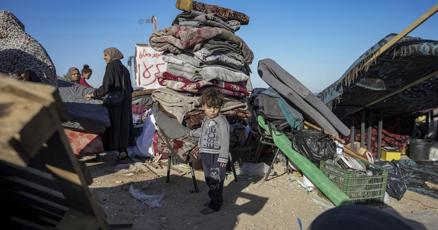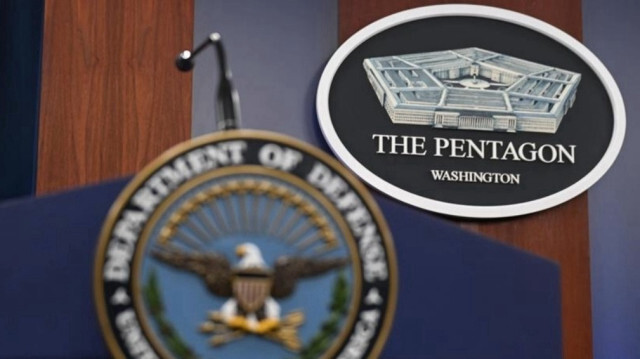Mideast Crisis Deepens: Gaza Desperate for Aid Amid Strikes
As the Middle East conflict escalates, Gaza's humanitarian crisis intensifies, while regional tensions soar with strikes on Lebanon and mounting casualties.
Published May 10, 2024 - 00:05am

Image recovered from thestar.com
The World Health Organization reports critical fuel shortages in Gaza's medical facilities, with the Rafah border crossing's closure exacerbating an already dire humanitarian situation. Northern Gaza is suffering from famine, and desperate civilians are impacted by the halt in aid.
Continued hostilities in Gaza have led to significant displacement and rampant destruction. Escalating tensions are observed as Israeli and Hezbollah forces engage in conflict, resulting in numerous fatalities across Lebanon and Israel. Biden's stance on weapon supplies to Israel shapes the geopolitical narrative.
Lebanon endures its own tragedies with confirmed deaths of Hezbollah members due to strikes. There are attempts by international mediators, including CIA Director William Burns, to establish a cease-fire amidst threats from Israeli Defense Minister Yoav Gallant of a war encompassing both northern and southern fronts.
The broader Middle East experiences repercussions as evidenced by Syrian state media reporting Israeli airstrikes, Iran retaliating with missile and drone launches against Israel, and the Houthi rebels asserting attacks in maritime regions. These actions reflect an intricate tapestry of regional conflict and power displays.
Gaza's healthcare is on the brink as fuel shortages may soon lead to a complete halt in medical operations. With a mass grave discovery at Shifa Hospital, the harsh consequences of the conflict become evident. The international community's efforts to facilitate aid delivery are hindered by the volatile situation.
The World Health Organization reports critical fuel shortages in Gaza's medical facilities, with the Rafah border crossing's closure exacerbating an already dire humanitarian situation. Northern Gaza is suffering from famine, and desperate civilians are impacted by the halt in aid.
Continued hostilities in Gaza have led to significant displacement and rampant destruction. Escalating tensions are observed as Israeli and Hezbollah forces engage in conflict, resulting in numerous fatalities across Lebanon and Israel. Biden's stance on weapon supplies to Israel shapes the geopolitical narrative.
Lebanon endures its own tragedies with confirmed deaths of Hezbollah members due to strikes. There are attempts by international mediators, including CIA Director William Burns, to establish a cease-fire amidst threats from Israeli Defense Minister Yoav Gallant of a war encompassing both northern and southern fronts.
The broader Middle East experiences repercussions as evidenced by Syrian state media reporting Israeli airstrikes, Iran retaliating with missile and drone launches against Israel, and the Houthi rebels asserting attacks in maritime regions. These actions reflect an intricate tapestry of regional conflict and power displays.
Gaza's healthcare is on the brink as fuel shortages may soon lead to a complete halt in medical operations. With a mass grave discovery at Shifa Hospital, the harsh consequences of the conflict become evident. The international community's efforts to facilitate aid delivery are hindered by the volatile situation.
The scarcity of fuel in Gaza is not only affecting its healthcare system but also the provision of essential services like water sanitation, food distribution, and transportation. Water scarcity has become a critical issue as power for desalination and sewage treatment plants becomes unreliable, worsening the risk of waterborne diseases among the population.
To compound matters, COVID-19 continues to pose a significant threat with limited supplies to conduct testing and vaccinations. The restrictions on border crossings have slowed down the flow of medical supplies and equipment to combat the pandemic, leaving the population vulnerable to the virus.
Gazans are left with dwindling medical resources as doctors face the challenge of treating the wounded with limited medicines and surgical supplies. Hospitals and clinics are becoming overcrowded, making it difficult to adhere to international health regulations intended to prevent the spread of diseases.
The recent power outages have also interrupted the preservation of essential medicines and vaccines, which require cold storage. The urgency of restoring electricity supply becomes more evident as reports show the deterioration of perishable medical supplies and other critical goods.
The upheaval extends to education and the lives of children, many of whom have been pulled out of school to protect them from infrastructure targeted during the conflict. The psychosocial impact on young minds witnessing continuous violence is another less visible but enduring damage of this prolonged strife. Aid organizations are warning of a lost generation if the needs of these children are not urgently addressed.
Beleaguered Gazan farmers and fishermen confront access restrictions that profoundly affect their livelihoods. Crops are untended and markets unsupplied, deepening the food insecurity. The impact of the Israeli-imposed blockade and the internal Palestinian rift between Hamas and the Palestinian Authority exacerbate the historically entrenched difficulties faced by Gaza's economy.
United Nations Relief and Works Agency for Palestine Refugees in the Near East (UNRWA) strongly advocates for the preservation of humanity through the support of basic needs for the Gazan population. The agency calls for global intervention to ease the blockade to prevent further degradation of living conditions.
On the diplomatic front, nations around the Arab World and broader international actors express urgency in resuming talks to settle contentious issues that fuel these repeated cycles of violence. The importance of engaging dialogues that encompass respect for sovereignty and a stance against occupation are topics progressively taking the stage in diplomatic circles.
The situation calls for a multifaceted approach that includes not only diplomatic and military interventions but also economic and humanitarian support. The root causes of the conflict demand profound attention as proposed solutions must encompass both immediate relief and long-term sustainable peace strategies.
As global leaders deliberate on courses of action, the eyes of the world remain locked on this delicate region, where every decision and every moment counts towards the balance of peace and the weight of war that hangs in the balance for millions of ordinary lives caught in the crossfire.




:format(jpeg)/cloudfront-us-east-1.images.arcpublishing.com/elespectador/E4FBVWFOZFFKJPADSHULE3OZ5U.jpg)


